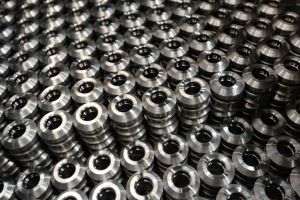• Răsvan Radu, the president of UniCredit Ţiriac Bank expects an increase in the demand for loans, in particular on the corporate segment
UniCredit Ţiriac Bank had a net profit of 171.2 million lei in 2010, according to the International Financial Reporting Standards (IFRS), down 47.9% compared to 2009, due to an increase in the cost of risk, the bank"s press communiqué states. The net profit according to the local accounting standards (RAS) was 57.2 million lei last year.
The annual return on equity (ROE) amounted to 7.5%, and the Return on Assets (ROA) stood at 0.8%.
The bank had a 16.6% increase of the operating profit, up to 779 million lei, due to an 8% increase in operating revenues, whereas operating costs only increased 0.4%. The cost/revenue expenses continued to improve, to 42.5%, compared to 46.1% in 2009 and to an estimated 53% for the banking system, the communiqué states. The solvency ratio stood at 12.5% according to the Romanian Accounting Standards (RAS), higher than the required level. The net provisions for the financial assets (mostly customer loans) increased 61.8% compared to 2009.
Răsvan Radu, the CEO of UniCredit Ţiriac Bank, said that he expects an increase in the demand for loans this year, in particular on the corporate segment.
"As early as the first two months of 2011, we see a timid recovery in the interest in investments among corporate customers and we rely on the fact that this area will generate growth this year, but this will happen in the second semester", he said. There is nevertheless interest in retail loans, first in the consumer loans segment and then, gradually in the mortgage loan segment. "The dynamic, whether we are talking about retail or corporate loans, depends first and foremost on the speed of the economy"s recovery and on whether the GDP growth forecast is met", he said.
The volume of loans granted by UniCredit Ţiriac Bank reached 20.8 billion lei at the end of 2010, up 2% over the end of 2009, according to the financial results of the bank.
The volume of loans on the balance sheet climbed 12.8% last year over 2009, to 13.5 billion lei, having a growth rate higher than the average of the banking system. The loan portfolio, in which outsourced loans were also included, reached 16.4 billion lei.
Customer deposits reached 11 billion lei at the end December 2010, up 4% over the end of 2009. The loan to deposit ratio was 123% at the end of last year.
The ratio of loans overdue more than 90 days reached 10.8% in 2010, higher than the ratio of 2009. the provision ratio increased to 6.8%. Restructured loans accounted for 19% of the loan portfolio at the end of 2009.
Răsvan Radu said that over the past few years, the number of non-performing loans has continued to increase. He said he expects non-performing loans to increase this year, but a lower rate than last year, meaning that the cost of provisions would decrease.
UniCredit Ţiriac Bank performed several optimizations, but without reducing its network in the territory, ending the year with 235 branches and 3,007 employees. In 2011, UniCredit Ţiriac Bank intends to open new branches.
Răsvan Radu said: "We want to resume the growth of our network, in line with the pace of the economic recovery. The former will be more subdued this year, with approximately 50 new branches on a national level, with this process to begin in the second half of 2011, when we will get a clearer picture of what is happening". Over the course of the next five years, UniCredit"s expansion plans in Romania involve the opening of 300 new branches of the bank, together with the development of the alternative channels, he said.
• "The government"s economic growth estimates are realistic"
The president of UniCredit Ţiriac Bank said that the economic growth estimate is realistic, provided that the steps needed for it are taken. he claims that in order to stimulate the economy the state should draw up new investment projects, collect the arrears from companies, launch public-private partnerships and clamp down on the gray economy.
"There has been a lot of talk about these things for a long time and no significant process has been achieved, but I think that this year there are great odds that results will be achieved, because the authorities" focus has shifted or will shift from budget adjustment, which for the most part can be completed in the first part of the year, to stimulating growth", said Răsvan Radu.
The authorities estimate an economic growth of 1.5% this year, after the GDP fell 1.3% in 2010.
Shares of Unicredit SpA, the largest Italian bank, rose over 3% yesterday, on the Milan Stock Exchange, to 1.83 Euros. The quotation is about 25% higher than the 52-week low: 1.46 Euros, on January 11th, 2011. During this 52-week period, the price of UniCredit stock fluctuated between EUR 2.30 and EUR 1.46.
Starting with February, the price of the bank"s stock was negatively affected by the tensions in Libya.
Libyan investors hold 7.6% of Unicredit, and the Central bank of Libya, the third largest shareholder of the lender, holds 5%. Libya"s sovereign fund holds 2.6% of the shares of the Italian bank. A few days ago, UniCredit froze the shares held by the Libyans, in order to comply with a decision made by the Authorities of the European Union.
"UniCredit" has a market capitalization of approximately 35 billion Euros. (A.V.)
















































